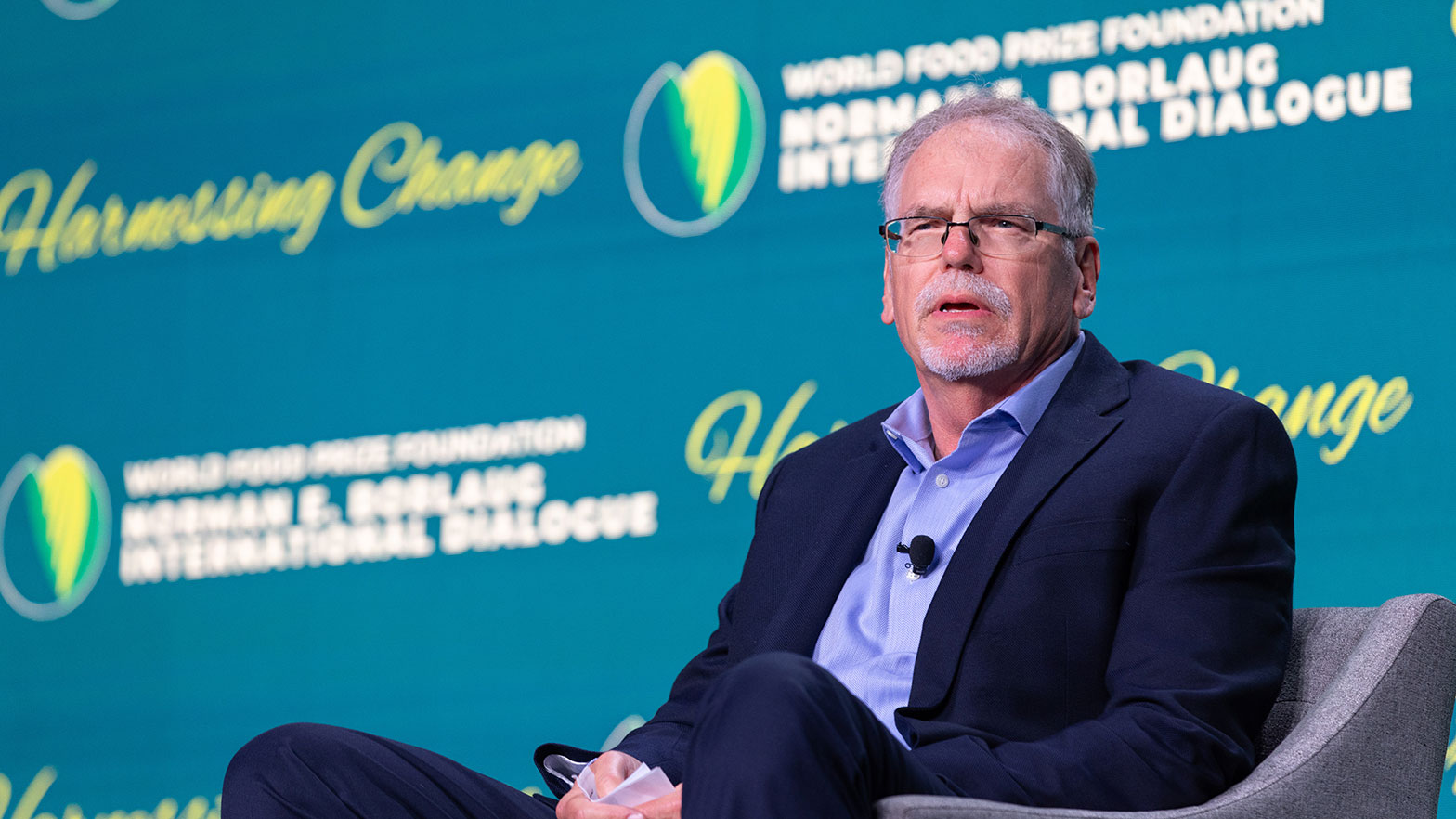alternative fuels
making the case to farm for tables and fuel tanks
2 min read | december 18, 2023
Kevin Lucke, president of Chevron Renewable Energy Group, believes further collaboration is needed to scale feedstocks as a fuel.
For lifelong Iowa farmer Kevin Lucke, harvesting crops isn’t just about filling plates—it’s also a way to support lower carbon fuel growth.
During a recent World Food Prize Foundation panel discussion, Lucke and his peers highlighted how advancements in the agriculture industry have helped to support the growth of both the food and fuel sectors. He said further collaboration is needed to scale the availability of feedstocks such as corn, soybean and cover crop oils to produce renewable fuels.
“Feeding the world is very complex,” said Lucke, who also happens to be president of Chevron Renewable Energy Group. “Fueling the world is very complex. Reducing greenhouse gases is very complex, and you can’t solve any of these three challenges without collaboration.”
kevin lucke
president
Chevron Renewable Energy Group
why it matters
The shift to high-quality, lower carbon fuels depends on energy-intense feedstocks. Chevron uses feedstocks that are waste and byproducts from the agricultural industry.
Agricultural suppliers, energy companies and allies can work together to build supply chains that keep waste from landfills, increase crop yields and contribute to the development of lower carbon energy.

Lucke, based in Iowa, has more than 40 years’ experience working for Chevron’s Downstream and Chemicals business.
it takes teamwork
Chevron supports policies that guide the scaling of lower carbon intensity solutions for the transportation sector.
Lucke said, during the recent panel moderated by Billi Hunt, executive director of America’s Cultivation Corridor, that working together to find solutions will be a key part of getting there.

Kevin Lucke, Chevron’s Renewable Energy Group president, participated in the panel discussion “Food and Fuel: Where Agriculture, Energy and Food Security Intersect” at a recent World Food Prize Foundation event.
“It’s going to take teamwork, and it’s going to take innovation,” he said. “I’m optimistic about the future, even though they’re complex challenges. But it’s going to take all of us to be able to be successful in meeting those three challenges of food, reliable fuel and a lower carbon environment.”
Click here to watch the full panel discussion.
topics covered
related content
-

 chevron CEO discusses the future of energy
chevron CEO discusses the future of energyemissions solutionsjanuary 20, 2025
-

 novel ideas, established companies key to advancing lower carbon tech
novel ideas, established companies key to advancing lower carbon techemissions solutionsjanuary 14, 2025
-

 chevron CEO talks growing production, efficient spending
chevron CEO talks growing production, efficient spendingemissions solutionsdecember 18, 2024
-

 biofuels can help maritime industry lower carbon intensity
biofuels can help maritime industry lower carbon intensityalternative fuelsnovember 08, 2024
chevron email updates
Subscribe to our newsletter to receive news and updates.



